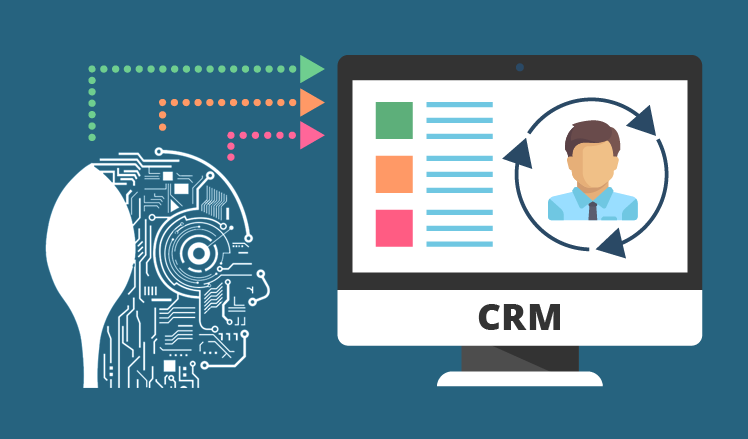How CRM Artificial Intelligence WorkPosted by Zachary Walker on January 4th, 2019
Businesses have viewed CRM platforms as simply a functional repository for customer data. CRM offers so much for businesses that operate in the service economy where continuous customer engagement is so critical to delivering on revenue goals.CRM platforms allow you to define how different employee roles interact with the system more effectively. They especially transform the way a company’s employees engage with their customer base when powered by one of the most important technological advances of recent years – artificial intelligence (AI). 1. CRM Driving Quality Data Management: AI, machine learning and predictive technologies all rely on the quality of the data sets with which they are working. The whole purpose of this technology is to boost efficiency and cut down on manual processes by studying patterns of behavior from data and constructing algorithms that can evolve, learn and make predictions. As the technology becomes increasingly efficient and smart, thanks to the quality of data available, the investment and resource needed to program machines will reduce. At the heart of this should be your CRM platform, driving insight and valuable learnings from rich, robust customer data. The ability to integrate social data is particularly beneficial, helping your organization to engage with, and learn from, customers at a more holistic level. 2. CRM AI Predictive Analysis: CRM is understanding the entire history of what customers are buying. AI can prosper in a world of unlimited and unsorted data.AI works in three ways: for capturing real-time data, learning through algorithms, NLP, ML, predictive analysis, enabling us to connect to consumers in ways that are new and closer to their needs. The real challenge in today's world is to have dynamic CRM, which help businesses have to keep pace with their constantly evolving customers and AI is a prime enabler in this game. When we talk about AI, we are referring in particular to Content Intelligence (CI) which can analyze and interpret people's actions online and inform marketing teams about the themes attracting the most interest along the buyer’s journey. 3. Virtual Assistant: Integrating AI into CRM will help them serve as virtual assistants for employees, allowing them to be more productive. This virtual assistant can automate customer responses, emails, data capture activities and follow-ups.These smart systems have access to client data like web behavior, demographics and by injecting an advanced degree of intelligence into them, they can learn and conduct sales conversations. These intelligent assistants may even generate quotes, send or respond to emails or book a common calendar time with the client. Microsoft Dynamics Crm online help CRM systems and applications are designed to manage and maintain customer relationships, track engagements and sales, and deliver actionable data, all in one place. Clear two helps in UK clients to streamline their business according to requirements. They are best CRM consultants in UK.
AI will help automate repetitive and mundane tasks that consume time. Activities like data input and retrieval, updating forecasts and determining call lists will be handled by AI. As CRM systems learn more about customers’ preferences and patterns they will be able to recommend and implement new processes and activities on behalf of the user. Sales reps will be able to readily tap into customer information and therefore spend more time on building relationships and closing deals. Like it? Share it!More by this author |



